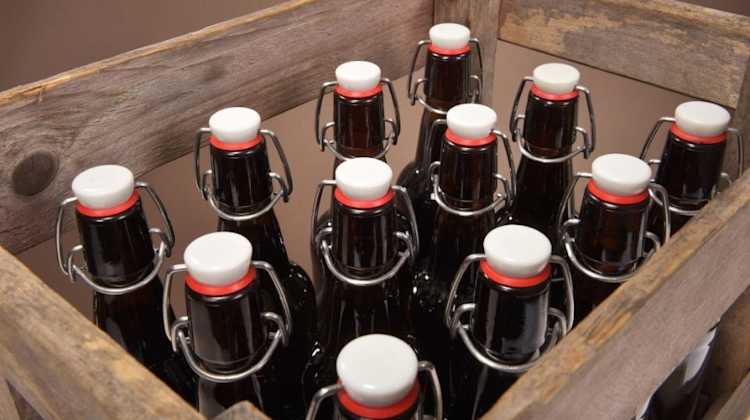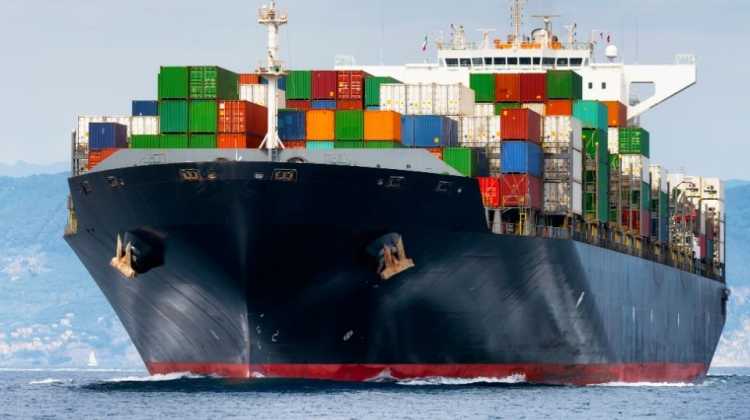How to Ship Wine After Being Stationed in Italy
by Becca Stewart - January 19th, 2022

Ah, Italy: the land of some of the world’s most enjoyable alcoholic drinks. From Limoncello to Chianti, Amaretto to Moscato, Italy has something for everyone. But when it’s time to PCS back to the States from Italy, can you bring some of that delicious vino with you?
Here’s what you need to know about shipping alcohol from Italy to a CONUS location.
Can I ship alcohol from Italy?
The short answer: it depends. The most crucial step for shipping your alcohol collection is doing your research. Before you stock up on that Barolo or a case of Grappa, contact your local travel management office (TMO). The regulations depend entirely on your follow-on location. Each state (or country, if PCSing OCONUS to OCONUS) will have specific rules regarding the transport of alcohol.
If you only want to bring back a favorite bottle or two, Italian law allows travelers to take up to one liter per person, duty-free, in their personal luggage. However, you might still have to pay IRS excise tax upon entry into the United States.
Check with the state
When returning to the States from Italy, you can typically bring a “personal collection” of alcohol as part of your HHG (Household Goods). That is, this collection must be intended only for personal consumption and may not be sold upon your return.
If you want to bring alcohol back from Italy, be sure to contact your state’s alcohol regulation authority. Each state has its own laws regarding alcohol shipments, including taxes and allotted quantities. State laws can be more restrictive than federal laws, and state laws supersede federal laws. Check the regulations for your gaining installation’s state here.
Some states limit how much alcohol you can transport, even if it’s part of a personal collection. “Control states,” like Utah, strictly regulate how much alcohol can be transported. Others, like Texas, allow service members to “import an unlimited personal collection of malt beverages, wine or distilled spirits along with their household goods when relocating to the state.”
The rules are as varied as the states themselves. Contact the state’s alcohol authority before starting your PCS to eliminate any surprises.
Organize your wine shipment early
In addition to contacting the TMO in Italy and the alcohol control authority at your gaining location, you should also start organizing your alcohol shipment. Many states require a detailed account of all products you’re transporting. You will likely need to fill out customs forms to ensure your shipment enters the U.S. without delay.
The easiest way to prepare is to create a spreadsheet detailing every bottle in your collection. Note the type of alcohol, the country of origin, alcohol content, quantity, and estimated value. When you arrive at your next location, this information will determine your total tax burden, if any.
Counting and organizing your shipment will also ensure you aren’t exceeding the state’s alcohol import limits. Exceeding those limits can cause shipment delays, additional fees, and even destruction of your prized collection.
Packing your alcohol shipment for transport
There are essentially three ways to ship your alcohol collection from Italy to the United States.
First, you can carry a small amount in your personal luggage. Italian law allows travelers to carry up to a liter per person, duty-free. However, this severely limits the number of bottles you can pack.
Your second option is the most popular with service members: pack your Italian wine and alcohol in your household goods (HHG) shipment. Talk with your local TMO for advice on preparing your shipment. While some movers will wrap and pack each bottle individually, you should provide waterproof containers to keep the alcohol from leaking onto your other property. Consider purchasing several plastic storage bins with lids, wrap each bottle in bubble wrap or packing paper, and place them tightly in the container for transport.
Keep in mind that your collection will count against your weight allowance; each bottle of wine weighs approximately three pounds.
Finally, service members may choose to have a third-party company transport alcohol from Italy. While this is a costly option, most of which is not covered under your moving expenses, it will protect your collection from damage. Extreme heat and cold can compromise the alcohol, particularly wines. Shipping your collection in mid-summer could change the flavor, damage the bottles, or spoil your collection entirely. Therefore, some people choose to hire a climate-controlled transportation company to move their collection from Italy to the United States.
You may be able to get a portion of this private transport reimbursed under a personally procured move (PPM, formally a DITY move), but that’s not always the case. Again, talk with the TMO before going this route.
Be prepared for taxes on wine imports
Some states waive duty and excise taxes for military service members. In Oklahoma, for instance, service members may bring up to 180 liters of alcohol into the state without paying excise tax. Other states will require members to pay taxes on the entire shipment. Some states won’t require you to pay taxes on alcohol brought from Italy, no matter how much you bring back.
How much you will pay depends entirely on the state’s laws, the size of your collection, and how well you’ve documented your collection before your PCS. Contact your current TMO or your gaining installation’s state alcohol authority for more information.
For more information about transporting wine from Italy to a CONUS location, visit this site.
Salute!







